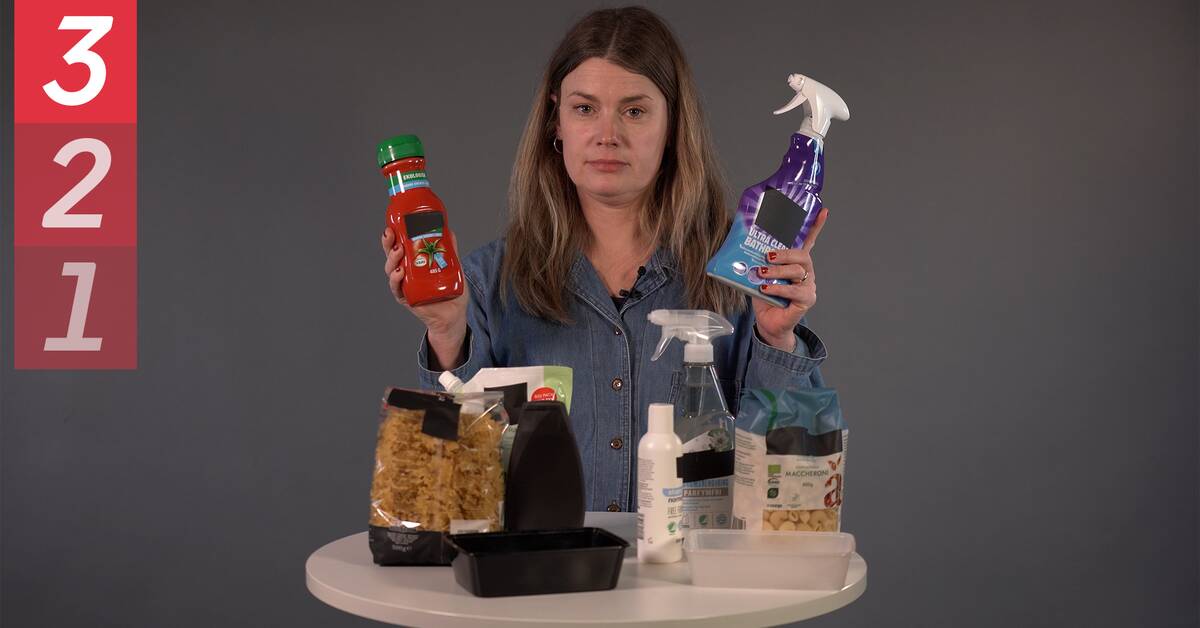Soap, ketchup and frozen peas - many of the goods we buy in grocery stores are packaged in plastic.
The problem is that a large part of the packaging cannot be recycled.
Even if we leave them for recycling, around two-thirds of all plastic will be incinerated.
The problem is what type of plastic the producers used.
- The producers have a great responsibility and must absorb the knowledge we offer.
So that they can design packaging that can actually be recycled, says Mattias Philipsson, CEO of Swedish Plastic Recycling.
The company operates the country's largest facility for recycling plastic packaging in Motala.
The ketchup bottle is set on fire
Orkla Foods Sweden is a major player in the grocery trade.
Felix tomato ketchup is one of their best-selling products.
It is sold in a red colored plastic bottle which today cannot be recycled.
- Of course I think it's very boring and sad.
But this is a complex issue.
We want it to be possible to recycle all packaging.
We think clearer guidelines and regulations are needed, says Elna Hallgren, development manager for packaging at Orkla foods in Sweden.
"The producers must tighten up"
Packaging can also contain various laminates and films that make the plastic difficult to recycle.
In the case of the red ketchup bottle, it's not just the color that's the problem.
The inside of the bottle is covered with a barrier to protect the ketchup, which also makes it difficult to recycle.
- This is something we are working on, developing packaging so that they can be recycled.
After all, development is moving forward in terms of the sorting and recycling of plastic, and that is something we really welcome, says Elna Hallgren at Orkla foods.
Swedish plastic recycling means that the company tries to recycle as much plastic as possible.
- But that requires two things.
Partly that as many people as possible sort.
Partly because the producers sharpen up and design their products in a wiser way, says CEO Mattias Philipsson.

